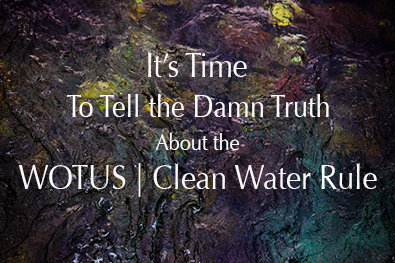One thing that has struck home in the time I’ve been in Wyoming is the polarity between those in the energy development field and those in the conservation field. The two groups don’t intermingle at the bar, and sometimes it’s a pretty fine line to shop the same aisle in Alco.
Simply put, the two groups don’t get along too well.
I was almost irrationally excited to talk to several people involved with Sportsmen for Responsible Energy Development (SFRED) this past week. The organization, formed in 2008, is a coalition of over 500 organizations, businesses and individuals who have banded together to try to bridge the gap between the energy industry and sportsmen.
Headed by behemoths Trout Unlimited, the Theodore Roosevelt Conservation Partnership and the National Wildlife Federation, SFRED is working to encourage energy industry development – it’s going to happen one way or the other – in a responsible manner.
“Hunters and fishermen utilize energy and they know it,” Ed Arnett, Center for Responsible Energy Development Director for the Theodore Roosevelt Conservation Partnership (TRCP) said. Sportsmen are linked to energy use and development in their daily lives, he added, as they drive their trucks into the field to hunt and fish.
Like it or not, the link is there, and the key is to help the sporting industry and the energy industry work in concert to protect the lands each group uses and loves.
SFRED was formed in 2008, with the goal to make sportsmen’s voices heard when it comes to energy development in public lands, Shauna Sherard, Communications Director for the Sportsmen’s Conservation Project / Trout Unlimited, said. At that point in time, sportsmen’s voices we lost in the crowd and they needed a platform.
“It’s all about balance,” she said. “We all need energy, but use of open lands is part of our heritage, it’s part of who we are. It’s very evident when we don’t have that.” Change is the one thing we can all count on, and SFRED realizes it is in inevitable part of life.
“We were – and are – looking for balance between energy development wild wildlife and fisheries management,” Arnett said, echoing Sherard’s words. “There are consequences if it [energy development] is not done well.”
The principles the coalition stands by are fairly simple: it aims towards progress in the energy industry, trying to understand what a viable balance is between development and conserving wildlife and public lands.
“It boils down to what responsible energy development really is,” Arnett said. Balance is a key theme for SFRED. If balance can be found between the two factions, energy can continue to grow and develop – as it must – but the sporting way of life can still be preserved.
SFRED is taking a step back and looking at the big picture of energy development in the West – not trying to piddle with little pet projects. They’re keeping an eye on solar energy development in the southwest, as well as careful watch over oil shale development in Utah, Wyoming and Colorado.
And, as the name itself implies, the group supports development, knowing it is an important part of the economy. They believe hunters and anglers provide a key voice in energy development, and aim to provide a platform for that voice to be heard.
“We want to continue where we started, to advance towards striking that balance,” Sherard stated, her passion for the organization evident. The group is always looking for additional organizations, businesses and individuals to add their name to the roster.
“We’re going to keep plugging away,” Sherard said. “We’re all sportsmen, all based in the West. This is our background.” Sherard is a fisherwoman herself, and revealed during our conversation that she has a bone to pick with the New Fork River, just outside of Pinedale.
“For all of us, it’s personal,” she added.
ShaleCountry from Shauna Sherard on Vimeo.

